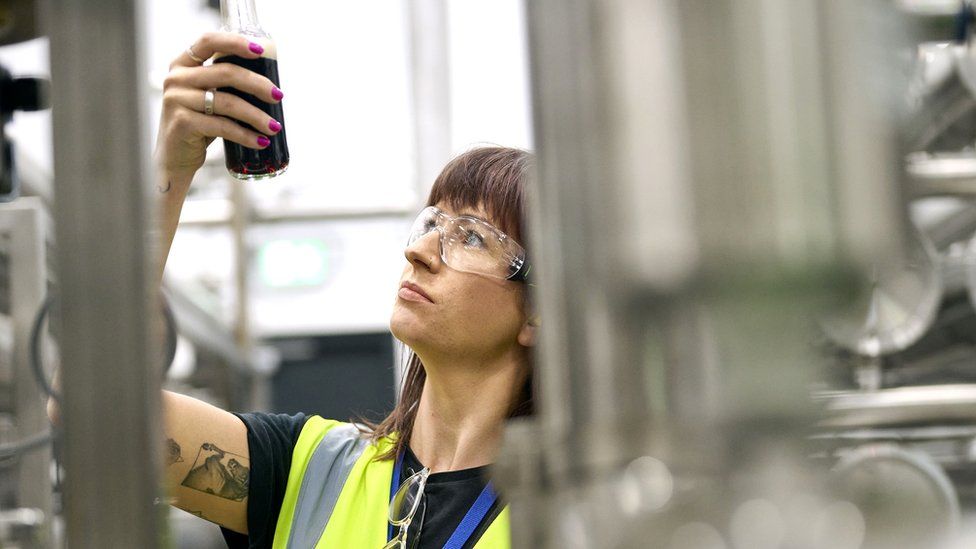-

-
-
Loading

Loading

Dublin's Liberties neighborhood is home to Guinness, one of Ireland's most famous brands. The brewery has been operating on the same site since 1759 when Arthur Guinness took over a derelict building. Today, Guinness is produced on a sprawling campus of interconnected buildings, with the sound of metal kegs being transported by forklift trucks echoing throughout. Despite the modern facilities, Aidan Crowe, operations director for beer, states that the brewing process has remained relatively unchanged since Guinness' early days. The Dublin brewery currently produces 3.5 million pints of beer per day, thanks in part to technological advancements that have made the brewing process more efficient, reducing water, steam, and electricity usage. The presence of large multinational firms like Diageo, which owns Guinness, has contributed to Ireland's status as the most productive country in the world, according to the Organisation of Economic Cooperation and Development rankings. Productivity is measured by the value a worker adds to the products or services they make, with workers in high-value industries like technology and pharmaceuticals typically being more productive. Dr. Emma Howard, an economist at the Technological University of Dublin, explains that Ireland's high concentration of multinational firms boosts productivity figures. However, other economists argue that the strong presence of these multinationals distorts Ireland's economic data, creating an artificial gap in productivity between foreign and domestic companies. Ireland's attractiveness to multinational firms is not solely due to its low corporation tax rate. Factors such as being an English-speaking country within the European Union and having a highly educated workforce, with a higher proportion of workers holding third-level and STEM qualifications compared to the EU average, also contribute to its appeal. The COVID-19 pandemic has shifted the way businesses operate, with many employees now working remotely. This presents challenges in maintaining productivity and communication across distributed teams. Robin Blandford, CEO of D4H, a company that supports emergency response teams globally, emphasizes the importance of effective communication and ensuring everyone understands the company's goals. Overall, while Ireland's productivity figures may be influenced by multinational firms, the country's educated workforce and favorable business environment also play a significant role.